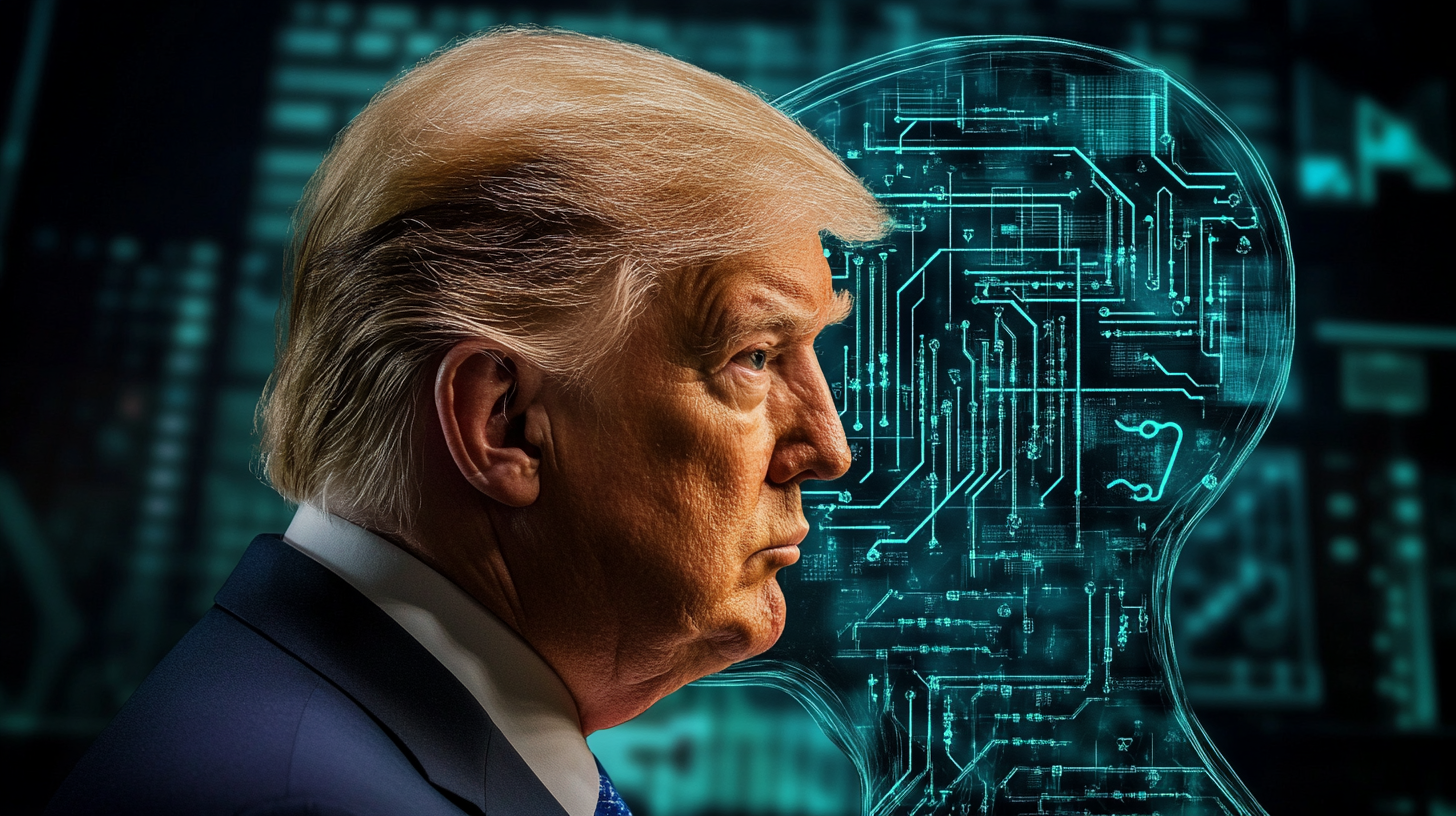
Regulation of artificial intelligence (AI): AI without borders? President Trump overturns Biden's decree on the security of artificial intelligence - creative image: Xpert.Digital
Trump dumps Biden's AI regulation: What does this mean for the future of technology?
Trump's first day in office: AI rules overturned - a free pass for developers?
On January 21, 2025, his first day in office, President Donald Trump repealed an executive order regulating artificial intelligence (AI) issued by his predecessor Joe Biden in 2023. This decree aimed to mitigate the risks that AI could pose to consumers, workers and national security. It required developers of AI systems that pose potential threats to national security, the economy or public health to share the results of security tests with the U.S. government before those systems are made available to the public.
Suitable for:
Effects of repeal
Relaxation of regulations
Repealing the decree is expected to loosen oversight of AI development in the United States. Trump and his supporters argue that the previous regulations hinder innovation and are seen as a hindrance to technological development. In his election manifesto, Trump emphasized that he wanted to promote the development of AI, but without presenting any concrete action plans.
Criticism of the decision
The decision to repeal the decree was criticized from various quarters. Experts warn that without proper regulation, the risks of AI technologies could increase significantly. Potential dangers include:
- Lack of transparency: Developers may tend not to disclose security-related information, compromising the traceability and accountability of AI systems.
- Bias and discrimination: Without clear guidelines, algorithms could reinforce unintentional biases, which can lead to discriminatory results.
- Security risks: Inadequate controls could lead to AI systems being misused or making dangerous decisions that endanger public safety.
These concerns reflect the need to find a balanced approach between promoting innovation and protecting society.
Global perspective
Trump's decision could also have an impact on the US's international competitiveness in the field of AI. While other countries, particularly the European Union, have enacted comprehensive regulations on AI development, US policy under Trump could lead to a less regulated environment. While this could promote innovation in the short term, it poses long-term risks in terms of safety and ethical standards.
Comparison with the European Union
The European Union is taking a stricter approach to regulating AI. With the proposed AI Act, the EU plans to set uniform standards to ensure that AI systems are transparent, secure and in line with fundamental rights. This risk-based approach categorizes AI applications according to their risk potential and sets appropriate regulatory measures. In contrast, the US may gain a short-term competitive advantage from deregulation under Trump, but risks falling behind European standards on ethics and safety.
Economic impact
Opportunities for companies
The easing of regulations could provide short-term advantages for US companies in the field of AI development. Fewer regulatory hurdles could lead to faster innovation cycles and market launches. Companies could act more flexibly and develop new technologies without extensive regulatory reviews. This could be particularly attractive for start-ups and smaller companies, which often do not have the resources to meet complex regulatory requirements.
Risks for the labor market
At the same time, there is a risk that unregulated AI developments could have negative effects on the labor market. Automation and the use of AI could make certain jobs obsolete, leading to job losses in various sectors. Without appropriate regulations and social safety mechanisms, social inequalities could be increased. It is therefore important that political decision-makers take measures to make the transition to an AI-driven world of work socially acceptable.
Ethical considerations
The deregulation of AI also raises ethical questions. Without clear guidelines, there is a risk that AI systems will make decisions that are morally questionable or violate social norms. It is therefore essential to develop ethical standards and ensure that AI systems are in line with society's values. This requires close collaboration between developers, regulators and civil society.
Future developments
It remains to be seen how AI deregulation under the Trump administration will impact technological development and society. While proponents hope for economic benefits and increased innovation, critics warn of the potential negative consequences for security, the labor market and ethical standards. Continuous monitoring and, if necessary, adjustment of political measures will be necessary to ensure a balanced approach to the opportunities and risks of artificial intelligence.
Overall, Trump's actions demonstrate a clear shift in US policy on artificial intelligence and place the future development of this technology in the context of national security interests and economic competitiveness.
Suitable for:
